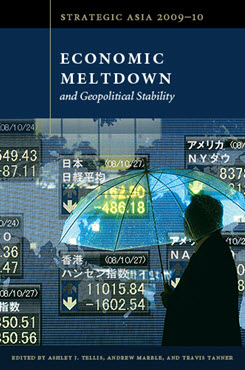Russia and the Global Crisis
Consequences of Delayed Reform
This chapter examines the effect that the global financial crisis is having on Russia’s economy, internal stability, and foreign policy.
EXECUTIVE SUMMARY
This chapter examines the effect that the global financial crisis is having on Russia’s economy, internal stability, and foreign policy.
MAIN ARGUMENT
The 2008 credit collapse has hurt Russian markets due to the weakness of domestic financial institutions and the lack of industrial restructuring. This crisis is threatening not only the resources that fund Russia’s power projection ability but also Putin’s “grand bargain,” in which society exchanged basic freedoms for economic stability. The economic reforms needed to weather this storm are, however, inherently destabilizing: freeing entrepreneurial energy, creating a meritocracy, leveling the playing field for businesses, and giving voice to the creative role of new capital formation will inevitably cost the entrenched interests that feed off Russia’s considerable resource wealth.
POLICY IMPLICATIONS
- If there is a long and deep global recession and energy prices sink near historic lows, the need for reform will become more obvious and the cost of such change much greater. Prolonged economic stress will lead to political polarization, making cooperation with the U.S. on strategic weapons, trade, nonproliferation, the environment, and other issues more difficult.
- If the recession proves to be brief and there is a strong rebound, Russia’s leaders are likely to simply return to the status quo, putting off reform.
- If global recovery is moderate, and energy prices stay at historically elevated levels, dissension and infighting among groups seeking to interpret the lessons of the crisis will lead to heightened and prolonged polarization. In this environment, Russia’s rulers will focus on survival by taking measures to minimize social unrest and conflicts between power blocs and to maintain major economic entities.
Strategic Asia
The Strategic Asia annual edited volume incorporates assessments of economic, political, and military trends and focuses on the strategies that drive policy in the region. Learn more about Strategic Asia.


